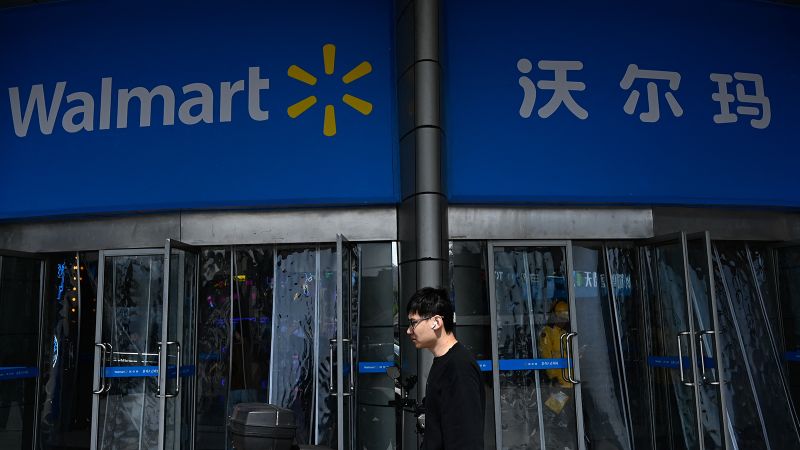The landscape of global trade, particularly between the United States and China, has undergone significant shifts recently, driven largely by the imposition of steep tariffs by the US government. Walmart and Target, two of America’s largest retailers, notably halted orders from some of their Chinese suppliers amid uncertainty regarding these tariffs. However, news has emerged that these retailers are gradually resuming business relations. According to two factories based in China, this resumption follows discussions between President Donald Trump and heads of major retail corporations, who cautioned that the potential for empty store shelves could pose severe risks to their operations.
The resumption is a crucial move for these retailers as they strive to maintain stock on their shelves, amid a turbulent trade environment. Compounding this volatility, Trump’s tariffs on Chinese imports have reached an alarming 145%. This escalation has prompted numerous American retailers, both large and small, to reconsider or outright cancel their supply agreements. The factories reporting to CNN disclosed their previous orders had been left pending for weeks, illustrating the profound impact of trade policies on operational continuity.
Despite the partial resumption of business, its extent remains ambiguous, as CNN has attempted to reach Walmart and Target for comments on the developments. The ongoing trade war between the US and China—the world’s two preeminent economies—remains entrenched, with both governments steadfastly refusing to scale back their tariffs or enter into negotiations. The situation paints a dismal picture, not only for retailers and consumers but also for the thousands of factories reliant on these export relationships in China.
Vivi Tong, a factory owner in Anhui province who produces toy cars, shared that orders from Walmart resumed last week. She noted this was a cautious move, as their toys are considered low-value products. Tong expressed that should the tariffs decrease to around 30%, it would make the products more palatable for American buyers. Typically, this period from May to October is peak for toy production, aligning with the holiday season, and the current stagnation could signify long-term repercussions if the situation does not stabilize.
Reports from Hong Kong’s Ming Pao indicate that Walmart is cautiously resuming orders from a selection of Chinese suppliers, emphasizing that the scale of these orders remains limited. Last month, prior to Trump’s steep tariff increments, Walmart had already begun pressuring its Chinese suppliers for discounts, inciting tension with Chinese authorities who summoned Walmart executives to discuss the matter.
Consequently, Michael Hart, president of the American Chamber of Commerce in China, highlighted the inevitability of resumed shipments, suggesting that there is an ongoing adjustment process where companies are negotiating with governmental entities regarding tariff exemption status on certain products that are deemed essential. Nevertheless, suppliers remain cautious about pricing and orders, with some, like Tong, feeling the pressure to lower prices to maintain competitiveness. This has prompted suppliers to seek alternative sales channels, including domestic markets and customers from other regions like Europe and Japan.
Factory owners are acutely aware of the rising stakes. Allen Yan, who produces swimming pool supplies, received new orders from Target after a two-week suspension but indicated that business with other clients like Costco remains stagnant. He lamented potential empty shelves in the US in the upcoming months, underscoring the urgency surrounding the resumption of trade.
From the Chinese perspective, official state media urged a reconsideration of US trade policies, implying that continued tariff implementation could severely disrupt product pricing and supply chain systems in the US. Insights shared by Rachel Zhang, who operates a textile factory, reflect the broader sentiment that many small and medium-sized enterprises stand to bear the brunt of the disruptions, underscoring the need for strategic planning amid uncertain future trade policies.
In response to these challenges, China’s Deputy Minister of Commerce, Sheng Qiuping, announced plans for enhanced financial support for exporters, aiming to fortify their operations against US tariffs. The Chinese government intends to diversify markets and encourage domestic sales, reaffirming its commitment to stabilizing foreign trade through a comprehensive suite of policy adjustments.



